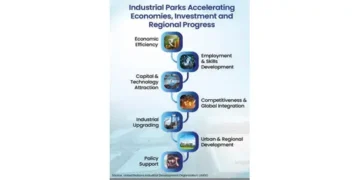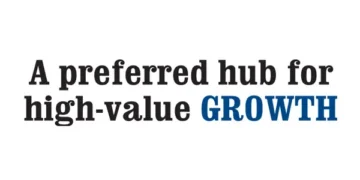 THE US elections are over. The people have spoken. There will be a peaceful transfer of power. Donald Trump will be President. One way of looking at this set of events is to breathe a sigh a relief and conclude that democracy in the United States is alive and well. The American Republic is in good shape. A written Constitution, Separation of Powers across two chambers of the Congress, an independent Supreme Court and civilian control of its powerful military ensures that the American Republic will not turn into an American Imperium.
THE US elections are over. The people have spoken. There will be a peaceful transfer of power. Donald Trump will be President. One way of looking at this set of events is to breathe a sigh a relief and conclude that democracy in the United States is alive and well. The American Republic is in good shape. A written Constitution, Separation of Powers across two chambers of the Congress, an independent Supreme Court and civilian control of its powerful military ensures that the American Republic will not turn into an American Imperium.
There is more. The United States is also a federation of 50 states. They boast of elected Governors, lawmakers, judges, public prosecutors, city mayors and a bewildering number of others. Its system of ‘electoral college’ votes, the final calculus in presidential elections, tries to divide power not only along functional lines but also across identities, communities and histories.
Compare the US democracy to the mother of parliaments at Westminster: untethered by a written constitution, burdened by archaic traditions, wigs and the Black Rod. The Government is relatively centralised, the Prime Minister is not directly elected. Elections are decided on the first past the post principle and the winner-takes-all. Noconfidence votes in Parliament can bring governments down despite its performance in the general election.
Why the nervousness
Seen from this perspective, the American Republic and its founding fathers seem to have found a way both to prevent concentration of political power as well as to weave geographical and ethnic differences into a single and impressive tapestry of democracy. If this is true, why worry so much about the election of a political enfant terrible; a wrecker of long accepted conventions and rules? Why all the nervousness about the impending swearing-in of Donald Trump?
Part of this nervousness is to do with the rise of similar ‘strong men’ or authoritarian, not a little xenophobic, regimes as well as political parties in even the more established of democracies: Hungary, France, Germany, Italy and now the Netherlands and, perhaps, Romania. Democratic government seems to be under strain not only in the United States but in many of its long-established allies.
All the more surprising is the fact this disappointment with democratic governance seems to have persisted, if not grown, at the time of the longest period of post-Second World War peace, of the creation of new international institutions intended to provide a framework for international law and dispute settlement, to regulate international trade, to create global arteries of travel, work, communication and finance.
This has also facilitated the sharing of scientific knowledge, collective research, global awareness of the need to preserve the global commons as well as work together to contain the transmission of deadly new diseases. Despite its booms and busts the period from the 1960s to today, has been one of economic and scientific progress, of dramatic labour migration both in-country, and cross-border, from developing to developed countries on the one hand and within the developed world on the other.
So, it should come a great shock to all those who have watched new generations grow who have never experienced war, who have significantly greater freedom to work, employment, friendships, partnerships and marriages, believe in their version of inherited religious practices and associations and social networks triggered by the magic of internet and social media.
This is not all. The Berlin Wall fell in 1991. Huntington wrote his classic ‘Third Wave’ and Fukuyama declared the end of history, and the demolition of the Marxian dream of some communist utopia of the future. The Marxists had dreamt of a world revolution led by parties of the working class. At one stroke, the ‘demos’ not the workers, had felled this over a century long cherished aspiration.

































